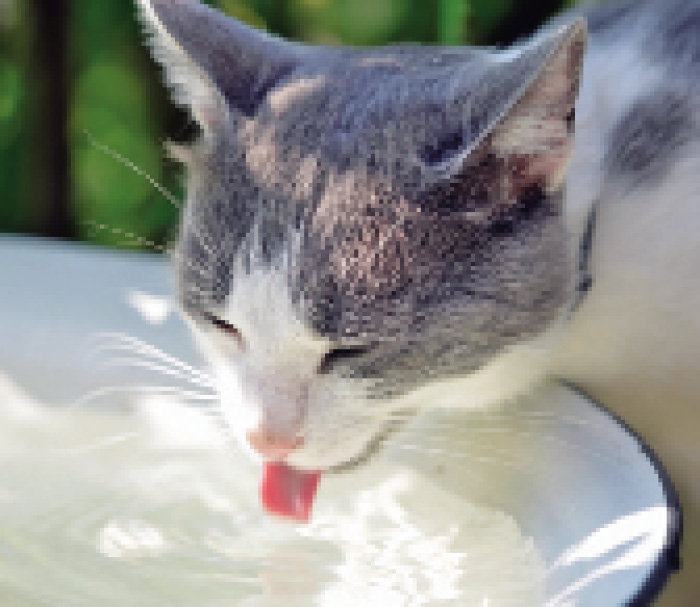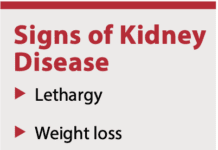Q. We are a multi cat household that has housed as many as 23 cats over the years, and we currently have 12 strictly indoor cats.
For the first 15 years or so, we were frequently losing cats to renal failure, and we decided to make two changes to try to prevent the problem: First, giving them filtered water and, second, ceasing to use the services of pest exterminators within our home. We did not alter their diet or make any other changes. Since we made these changes, we have not had a cat develop kidney failure.
We are convinced that either the unfiltered water or the pesticides or both contributed to the high frequency of kidney failure before we made the management changes. In the reading I’ve done, however, there is no mention of this association in any literature.
Can you please give me your thoughts on this issue? If there is indeed a potential link between the type of water supply and/or pesticides and renal failure in cats, I think it’s important that all cat owners are made aware of this.
A. Thanks for getting in touch and for your obvious care of and concern for the well-being of the many cats that have been fortunate enough to find you. I am very happy to hear that you have not had any recent cases of kidney disease, as this is a very common problem in cats.
Feline kidney disease can be generally divided into acute (AKD, rapid onset, potentially reversible, but not always) and chronic (CKD, slow onset, usually not reversible) types. AKD is most commonly caused by decreases in blood flow to the kidneys, intoxications, the effects of various drugs, and other diseases like bacterial infections, trauma, and urinary tract obstruction. The cause of CKD, which is extremely common in cats, particularly as they age (found in up to 80% of geriatric cats) is currently unknown. Although a number of potential causes of feline CKD have been proposed, none of these has been proven.
While I cannot be certain, I don’t think it is likely that the switch to filtered water is responsible for a decrease in incidence of kidney disease among your cats, as I am not aware of any published data that would support this notion.
The issue of the effects of pesticides also is also not something that I can address with confidence, but it is true that there is some correlative evidence in people that long-term exposure to some pesticides may be associated with an increased risk for the development of CKD. This data is only correlative and does not prove that these pesticides cause CKD in people. More research is necessary to determine whether this is the case.
Of course, it may be just a matter of good luck that you have experienced this fortunate decrease in incidence of kidney disease in your cats, but either way, I am very happy that this is the case. I sincerely hope this continues for you and your cats.
We will inform the public of any advances we learn regarding this issue. Best regards from all of us here at the Cornell Feline Health Center.




